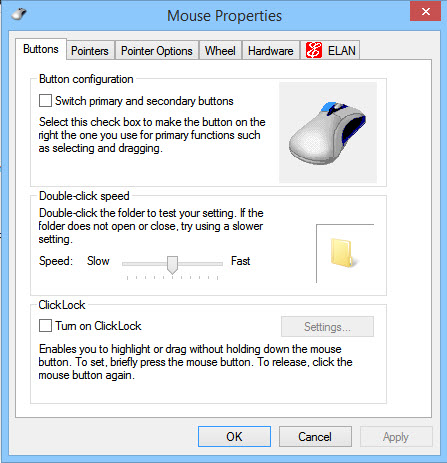- Create Outlook Web App Shortcut On Desktop Mac Free
- Yahoo Shortcut On Desktop
- Add Outlook Shortcut To Desktop Windows 10
To add a shortcut to Outlook from your desktop, you will need to have Microsoft Office already installed on your computer. To find it click on the Start menu, and select All apps. How to add Outlook to your desktop in Windows 10 How to add Outlook to your desktop in Windows 10 Page 1.
Hi there
This post may be under the wrong section, if you are a new Mac user, then you most likely have an Intel based Mac, not a PPC. And also, you may want to not write IN CAPS as it usually indicates yelling in a forum environment 🙂
Create Outlook Web App Shortcut On Desktop Mac Free
1. You cannot Cut & Paste on a Mac, you may Copy & Paste, if you want to Cut & Paste (CMD + X) you can download MoveAddict from the Mac App Store.
2. EDIT: Sorry, I thought you meant Application shortcut - do what he said / / / 🙂
Hope that helps
😀

Taylor
Apr 28, 2011 10:42 PM
I’m a real “keyboard junkie” and am quite familiar with the keyboard shortcuts that are available in Outlook itself.
Sometimes I use the web based version of Outlook and often forget that it isn’t the Desktop version but was pleasantly surprised that some of the keyboard shortcuts still work.
Is there a list of available keyboard shortcuts for Outlook on the Web?
There are many keyboard shortcuts for the web version of Outlook and even the overview is only a keyboard shortcut away. When you are in your mailbox, just press the question mark (‘?’) character on your keyboard to see them.
You can even adjust the keyboard settings so that they will more closely match with the keyboard shortcuts of Outlook on the Desktop, Gmail or Yahoo.
Outlook style keyboard shortcuts in Outlook on the Web. (click on image to enlarge)
Note: The ‘?’ keyboard shortcut only works in Outlook on the Web, Outlook.com and OWA for Exchange 2016. However, most of the keyboard shortcuts listed in the picture above also work for OWA 2010 and OWA 2013.
Changing the keyboard shortcuts
To change the keyboard shortcuts style, you can click on the link at the bottom of the overview when pressing the ‘?’ button on your keyboard or;
- Outlook on the Web (Office 365)
- Open the Options screen via the gear icon in the top right corner left from your display picture-> section: My app settings-> Mail
- In the Options screen choose: General-> Keyboard shortcuts
- Outlook on the Web (Outlook.com)
- Open the Options screen via the gear icon in the top right corner left from your display picture-> Options
- In the Options screen choose: General-> Keyboard shortcuts
- Outlook on the Web (Exchange 2016)
- Open the Options screen via the gear icon in the top right corner left from your display picture-> Options
- In the Options screen choose: General-> Keyboard shortcuts
- Outlook.com (not yet migrated accounts)
- Open the Options screen via the gear icon in the top right corner left from your display picture-> Options
- In the Options screen choose: Customizing Outlook.com-> Keyboard shortcuts

You can select your favorite keyboard shortcut style. (click on image to enlarge)
Note: Outlook.com accounts that have not yet been migrated do not have the option to choose the Outlook style keyboard shortcuts.
Common keyboard shortcuts you may want to remember
As they are many keyboard shortcuts available, (directly) remembering them all is probably too much on an effort. Below are the ones I find myself use the most frequent and might be a good start to start using keyboard shortcuts in Outlook and Outlook.com.
| Command | Outlook style | Outlook.com style |
| New email | N / Ctrl+N | N / Ctrl+N |
| Send email | Ctrl+Enter / Alt+S | Ctrl+Enter / Alt+S |
| Reply | R / Ctrl+R | R |
| Reply All | Shift+R / Ctrl+Shift+R | Shift+R / Shift+A |
| Forward | Shift+F / Ctrl+Shift+F | Shift+F |
| Save Draft | Ctrl+S | Ctrl+S |
| Search | Alt+Q | / |
| Go to Inbox | G then I | G then I |
| Go to Mail | Ctrl+Shift+1 | (not available) |
| Go to Calendar | Ctrl+Shift+2 | (not available) |
| Go to People | Ctrl+Shift+3 | (not available) |
| Mark as Read | Q / Ctrl+Q | Q |
| Flag for Follow Up | U / Ctrl+U | U |
| Move to a folder | V | V |
Yahoo Shortcut On Desktop
As you can see, the Outlook style and Outlook.com style are very similar and I personally prefer the Outlook style.
Not only does the Outlook style include pretty much all Outlook.com keyboard commands, it also gives you easy access to switch between the Mail, Calendar and Contacts Navigation Module in the same way Outlook does.
Add Outlook Shortcut To Desktop Windows 10
The biggest change is that the Search command is Alt+Q instead of the a single slash (‘/’). In Outlook Desktop, you can use CTRL+E or F3.
For an overview of even more shortcuts that aren’t listed on the ‘?’ screen see; Keyboard shortcuts in Outlook on the web